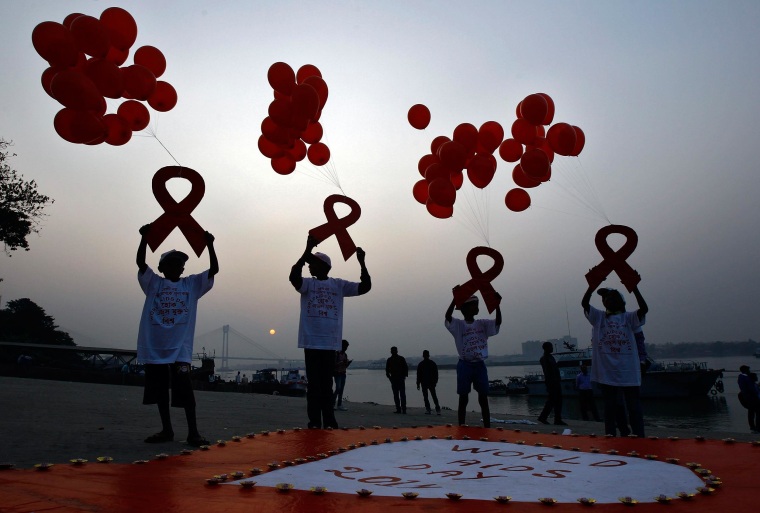The world has made “extraordinary progress” against AIDS, slashing the rate of new infections by more than a third and saving nearly 8 million lives since 2000, a new report finds.
Fifteen years of work to make sure more people get drugs that can keep them healthy and keep them from infecting others has had spectacular effects on the pandemic that has killed nearly 40 million people, the United Nations AIDS agency UNAIDS says in its report.
Distribution of condoms has averted around 50 million new HIV infections since the HIV pandemic started in the 1980s, and other programs to educate people about how HIV spreads and to encourage safe sex have helped, also.
“The world has delivered on halting and reversing the AIDS epidemic,” said U.N. Secretary-General Ban Ki-moon.
“The world has delivered on halting and reversing the AIDS epidemic."
Nonetheless, 36.9 million people are still infected with the human immunodeficiency virus (HIV) that causes AIDS, UNAIDS says. There’s still no vaccine to prevent it and there is still no cure. Two million people are infected every year and more than a million die of AIDS.
But the report celebrates what has been achieved since 2000. For instance, 15 million people are on the drugs that can suppress the virus, called antiretroviral therapy.
“New HIV infections have fallen by 35 percent and AIDS-related deaths by 41 percent,” UNAIDS said in a statement.
“The global response to HIV has averted 30 million new HIV infections and 7.8 million AIDS-related deaths since 2000,” it added. “Had the world stood back to watch the epidemic unfold, the annual number of new HIV infections is likely to have risen to around 6 million by 2014.”
A major advance has been getting drugs to pregnant women so they do not infect their newborns.
“In 2000, around 36,000 children became infected with HIV. However, by 2014 that number had dropped by 87 percent, to 4,800,” UNAIDS said.
“By 2014, UNAIDS estimates that 85 countries had less than 50 new HIV infections among children per year.” Earlier this year, Cuba was named as the first country to eliminate mother-to-child transmission of HIV.
“New HIV infections have fallen by 35 percent and AIDS-related deaths by 41 percent."
Much of the success was due to heavy pressure on drug companies and their agreement to provide cheap, generic HIV treatments, UNAIDS said. “In 2000, fewer than 1 percent of people living with HIV in low- and middle-income countries had access to treatment, as the sky-high prices of medicines — around $10 000 per person per year — put them out of reach,” UNAIDS said.
“By 2014,the price of medicines for HIV dropped by 99 percent, to around $100 per person per year for first-line formulations. and 40 percent of all people living with HIV had access to antiretroviral therapy, a 22-fold increase over the past 14 years.”
A second report from UNAIDS and the Kaiser Family Foundation found international aid to help fight HIV around the world has virtually leveled off. Donor government funding rose by by less than 2 percent to $8.6 billion in 2014 – 1 percent when adjusted for inflation. All the increase was due to the British government, the report found.

